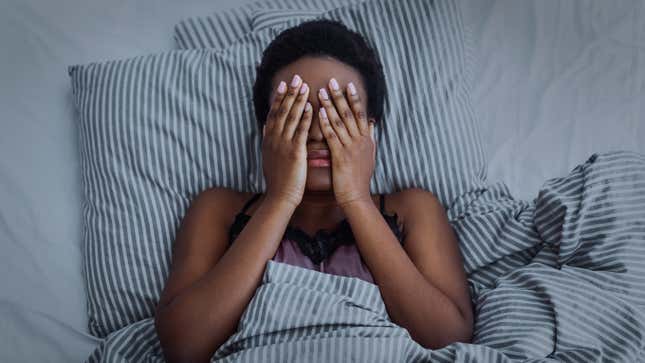
How did you sleep last night? Did you sleep? Were you able to stay asleep? If not, you may have insomnia. According to the American Psychiatric Association, insomnia is the most common sleep disorder. The dictionary loosely defines insomnia as a prolonged and usually abnormal inability to get enough sleep, especially due to trouble falling asleep or staying asleep. Your doctor will likely diagnose you as having insomnia if you meet both of the following criteria:
- Sleep difficulties occurring at least three nights a week for a minimum of 3 months.
- Sleep difficulties creating major distress or functional difficulties in a person’s life.
People have insomnia for myriad reasons. I suffered from insomnia in college. Looking back on that time, I believe it was caused by stress, as I had a very difficult course load and was adjusting to being away from home. According to the American Psychiatric Association, other issues that can cause insomnia are depression, changes in shifts at work, obesity, and heart disease. But how best to treat it?
There are, of course, medications for insomnia, and many of them work very well—perhaps too well. Even over-the-counter medications should be taken with caution because not only may you sleep more hours than you intended, but they can be addictive. Accordingly, please consult your doctor before starting any medication for insomnia; it could be due to depression or another psychological disorder, so it is important to consult a doctor to decide the best treatment for you.
Thankfully, there are also some non-medical ways to treat insomnia. Growing up, my mom would sometimes have a spoonful of peanut butter before bed. I researched the practice and found out peanut butter is a natural source of tryptophan—the amino acid that causes sleepiness. Did you know there was a scientific basis behind your parents giving you a glass of milk before bed? Milk (dairy, coconut, and nut milk) also has tryptophan and can help you sleep.
In addition to other remedies, here are three behavioral changes you can make to help you get a good night’s sleep.
- No TV in the bedroom—or at least, don’t leave it on when trying to go to sleep.
- Don’t keep your phone in or close to your bed. The blue light from your phone will keep you awake.
- Avoid exercise and caffeinated drinks too close to bedtime.
Sleep is very important—vital, even—and you will realize just how important it is when you don’t sleep well at night. People with insomnia have trouble focusing during the day, some experience mood changes, and other unpleasant consequences include poor eating habits and weight gain. So, prioritize getting your rest every night so that you can have better days, and a better life.

